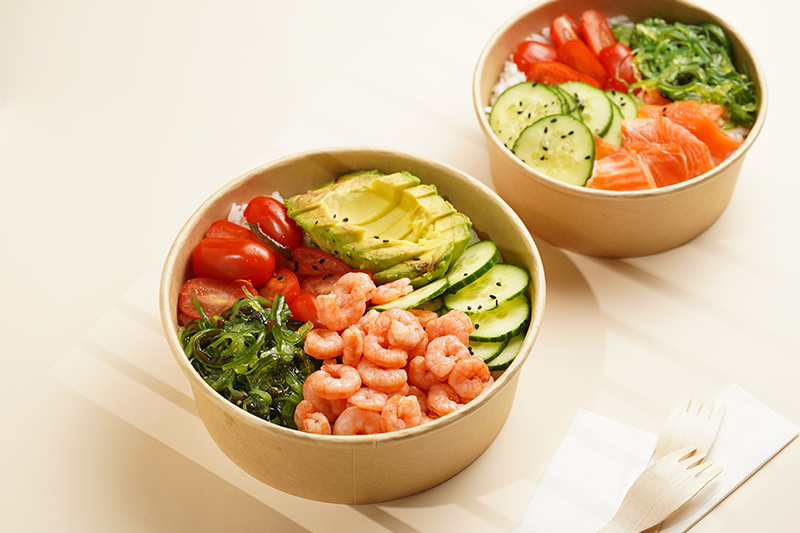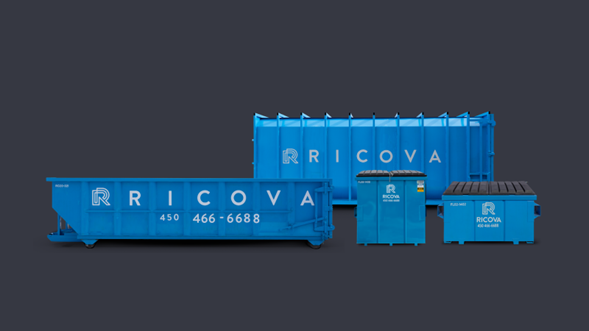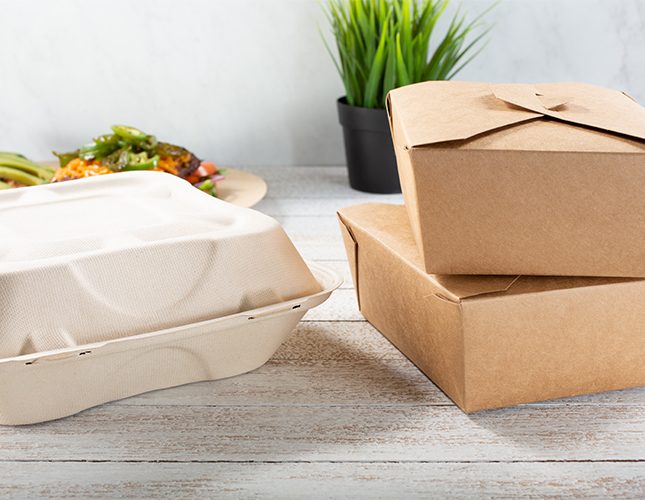After banning single-use plastic bags in 2022, the City of Montreal is now banning certain single-use plastic items used by restaurants and businesses on its territory.
As of March 28, 2023, the City of Montreal has banned an initial list of single-use plastic items used mainly by restaurants, specifically for takeaway meals and deliveries. In addition to the 2022 ban on single-use plastic bags, this new provision will require Montreal’s 8,400 food shops and restaurants to find substitutes for single-use plastic items; many had already begun to do this even before the new by-law came into force. The new regulations encourage entrepreneurs to innovate in terms of replacing items whose lifespan can be as short as a few minutes.
Which single-use plastic items are now banned?
- Cups
- Glasses
- Sticks
- Straws
- Plastic utensils
- Trays (except for raw meat and fish)
- All plastic items number 6 or 7
It should be noted, however, that there are certain exceptions to this by-law: foods that are pre-packaged outside the establishment, non-profit food aid organizations, and caterers.
Why tackle plastic numbers 6 and 7?
In common parlance, it’s called plastic number 6, but what it really is expanded or unexpanded Polystyrene. It’s often used in the form of Styrofoam to make disposable coffee cups, vegetable trays and so on, but it can also be used in a more rigid form, such as for single-serving yoghurt containers, utensils or small milk or coffee cream containers.
Even when put in the recycling, plastic number 6 is not recycled because it’s simply not cost-effective to do so, since it’s made up of mostly air. This means that it takes a large amount of plastic number 6 to produce even a tiny amount of recycled plastic. On top of this is the large space needed to store it, and the need to transport and process it. The total cost simply isn’t worth it in terms of business opportunity. It may be useful, but it’s worthless to recycle and remanufacture.
As extended producer responsibility slowly takes hold in Quebec, companies will be required to market packaging that can be recycled or face hefty fines. It’s a safe bet that plastic number 6 will not be a number that continues to be in circulation beyond 2025.
Plastic number 7 is also recycled in small quantities, as additives are often added, making it difficult to separate the materials for proper recovery. It may be made of polycarbonate, Teflon or even melamine. Sometimes, it can also be a plant-based plastic called Polylactic acid (PLA), but contrary to popular belief, this plastic is neither biodegradable nor compostable. For the time being, plastic number 7 doesn’t really belong in the compost bin, given the type of environment it must be subjected to in order to become compostable.

What can we use to replace single-use plastic in Montreal?
When it comes to replacing single-use plastic, there are plenty of authorized, greener alternatives. We can think of paper or cardboard (without plastic laminate), wood (think of utensils or coffee sticks, for example) or a plastic with a durable composition, unlike plastic number 6 or 7, which are not recyclable in Quebec.
Of course, the best option remains reusable crockery when facilities allow. This is the favored option when we talk about the circular economy: marketing or offering solutions that can be used repeatedly to reduce their environmental impact.
The City of Montreal offers a directory to guide entrepreneurs with this change. It’s called Guichet unique pour la transition alimentaire. You’ll find ideas on how to replace single-use plastic in your business, as well as examples of prohibited dishes.
Do not hesitate to contact us if you have any questions:








